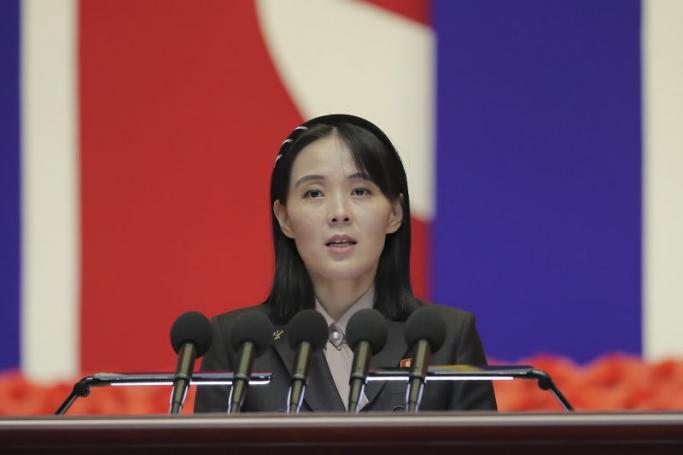AFP
The powerful sister of North Korean leader Kim Jong Un warned on Friday of "overwhelming nuclear deterrence" unless the United States drops what she called its "hostile policy" against Pyongyang, state media reported.
Kim Yo Jong also defended North Korea's latest intercontinental ballistic missile (ICBM) launch as an act of self-defence.
The nuclear-armed state on Wednesday test-fired a solid-fuel missile that flew 1,001 kilometres (622 miles) at a maximum altitude of 6,648 km, before splashing into the East Sea, also known as the Sea of Japan.
Its trajectory suggested it was capable of reaching the mainland United States, analysts said.
"Under the premise that the United States doesn't accept dropping its anti-North Korea policy... We will strive hard to establish the most overwhelming nuclear deterrence," Kim Yo Jong said in a statement carried by the Korean Central News Agency.
The launch was an "exercise of self-defence... to protect the Korean peninsula from falling into a nuclear warfare", she said, adding that no one could blame Pyongyang in the face of Washington's "hostile policy".
She went on to rail against the United Nations Security Council for its response to the launch.
In a joint statement, 10 of the Security Council's 15 members including South Korea condemned the latest test and noted that the North's 20 launches of ballistic missiles in 2023 were "all blatant violations of multiple Security Council resolutions".
Kim Yo Jong slammed the statement, saying it was "unfair and biased".
Earlier this week she accused US military surveillance jets of breaching North Korean airspace, warning that they could be shot down.
In response to the North's string of missile launches this year, Seoul and Washington have ramped up security cooperation, vowing that Pyongyang would face a nuclear response were it to ever use its nuclear weapons against the allies.
AFP












